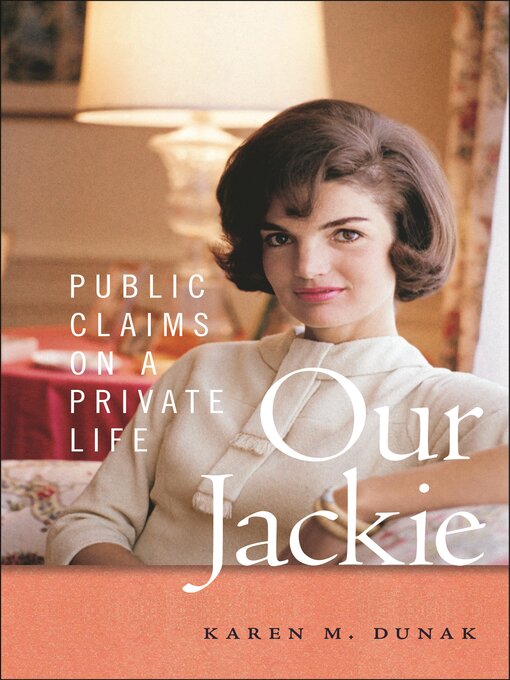Tells the story of Jacqueline Kennedy Onassis through her evolving public persona, from campaign wife to First Lady to fallen idol to treasured national icon
When Jacqueline Kennedy Onassis became First Lady of the United States over sixty years ago, she stepped into the public spotlight. Although Jackie is perhaps best known for her two highly-publicized marriages, her legacy has endured beyond twentieth-century pop culture and she remains an object of public fascination today.
Drawing on a range of sources– from articles penned for the women's pages of local newspapers, to esteemed national periodicals, to fan magazines and film– Our Jackie evaluates how media coverage of Jacqueline Kennedy Onassis changed over the course of her very public life. Jackie's interactions with and framing by the American media reflect the changing attitudes toward American womanhood. Over the course of four decades, Jackie was alternatively praised for her service to others, and pilloried for her perceived self-interest. In Our Jackie, Karen M. Dunak argues that whether she was portrayed as a campaign wife, a loyal widow, a selfish jetsetter, or a mature career woman, the history of Jackie's highly publicized life demonstrates the ways in which news, entertainment, politics, and celebrity evolved and intertwined over the second half of the twentieth century.
Examining the intimate chronicles of this famous First Lady's life, Our Jackie suggests that media coverage of this enigmatic public figure revealed as much about the prevailing views of women in America– how they should behave and whom they should serve– as it did about Jacqueline Kennedy Onassis as an individual.
- NYT Best & Notable Since 2000 eBooks
- New eBook additions
- Invention, Innovation, and Inquisitiveness
- Read a Classic You Missed...
- Scifi Absolute Classics
- Contemporary Romantic Comedy
- If you like Danielle Steel, try these!
- If you like John Grisham
- Michael Connelly alike ebooks
- Fairy Tale, Myth, and The Hero's Journey
- Always Available Classics
- National Book Award Longlist ebooks
- And the Prize Goes to....
- See all ebooks collections
- NYT Best & Notable Since 2000 eAudio
- Full-cast recordings
- New Audiobook Additions
- Find and Listen to a Classic That You Missed...
- Get Your True Crime Fix
- Read by a Celeb
- Listen to a New Series
- If you like Danielle Steel, Try These!
- Michael Connelly alike audiobooks
- If you like Stephen King...
- Fantasy here!
- Audio available now
- Top Audiobook Narrators
- See all audiobooks collections
- Pride
- Celebrate Diverse Voices
- Sexual Assault Awareness
- Parenting
- Parenting Teens
- Managing Stress and Anxiety
- Sobriety
- We Can All Go Back to School
- See all featured collections collections


